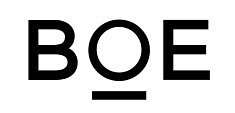
Beyond Displays: BOE’s Decade-Long Commitment to Bridging China’s Education Gap
BOE Technology isn’t just a display giant. For ten years, the company has quietly built smart classrooms and digitally preserved cultural heritage, aiming to level the playing field for rural Chinese students. We examine their impact.
Beyond Displays: BOE’s Decade-Long Commitment to Bridging China’s Education Gap
By Angela Gray | November 05, 2025
For many, BOE Technology Group Co., Ltd. conjures images of sleek screens powering the latest smartphones and televisions. But beyond its dominance in the display industry, BOE has been quietly building a different kind of legacy for the past decade: a commitment to bridging the educational divide in rural China. This month, the company concluded its ten-year “Light the Way Forward” initiative, a program that has seen the installation of 156 smart classrooms and reached over 70,000 teachers and students. But the story goes deeper than hardware; it’s a strategic blend of technology, cultural preservation, and corporate social responsibility.
Launched in 2015, “Light the Way Forward” initially focused on providing basic technology infrastructure – computers, internet access, and interactive whiteboards – to schools in underserved regions. However, the initiative quickly evolved to address a more fundamental need: culturally relevant content. Recognizing that simply providing technology wasn’t enough, BOE partnered with the Palace Museum in 2023 to launch the “100 Traditional Culture Lectures” program. This collaboration leveraged BOE’s digital expertise to create engaging educational materials that brought traditional Chinese culture to life for students in remote areas.
“The initial response was encouraging,” says a program coordinator at a school in Gansu province, speaking anonymously. “Students were far more engaged with lessons when they could see and interact with content related to their own heritage. Before, it felt disconnected.”
Beyond Hardware: A Holistic Approach
The strategic shift towards culturally-integrated content highlights a crucial understanding of effective educational reform. As China continues to grapple with inequalities between urban and rural areas, simply providing resources isn't enough. A holistic approach is necessary, one that acknowledges the importance of cultural identity and relevance. World Bank data confirms this. While access to education has expanded significantly in China, disparities in educational outcomes between urban and rural students persist.
“There’s a growing recognition that technology needs to be paired with culturally appropriate content to be truly effective,” explains a researcher specializing in rural education in China. “It’s not just about access to information; it’s about making that information meaningful and relevant to the students’ lives.”
BOE’s partnership with the Palace Museum is a prime example of this. The “100 Traditional Culture Lectures” program isn’t simply a series of pre-recorded videos. It’s a carefully curated collection of digital resources – interactive exhibits, 3D models of historical artifacts, and engaging animations – that bring Chinese history and culture to life for students. Moreover, BOE’s technological innovations – including glasses-free 3D displays – enhance the learning experience, making it more immersive and engaging.
A Model for Corporate Social Responsibility?
While many companies engage in philanthropic initiatives, BOE’s “Light the Way Forward” stands out for its long-term commitment and strategic approach. The ten-year duration of the program demonstrates a genuine dedication to addressing a complex social issue. Furthermore, the integration of technology, cultural preservation, and educational reform sets a high bar for corporate social responsibility.
“We’ve seen a lot of companies launch short-term CSR initiatives,” says a sustainability analyst following the technology sector. “But what’s impressive about BOE is their sustained commitment and willingness to adapt their approach based on what’s working and what’s not.”
BOE’s efforts haven’t gone unnoticed by other companies. Several tech firms in China – including Huawei and Alibaba – have launched similar educational initiatives, signaling a growing trend towards corporate social responsibility in the technology sector. However, BOE’s long-term commitment and integration of cultural preservation set it apart.
Challenges and Future Directions
Despite its successes, BOE’s initiative faces ongoing challenges. Maintaining the technology infrastructure in remote areas can be difficult, particularly in regions with limited internet access and technical expertise. Furthermore, ensuring the sustainability of the program requires ongoing funding and support.
“The initial investment is only part of the equation,” explains a teacher in a remote Sichuan province. “We need ongoing training for teachers and technical support to keep the technology running smoothly.”
Looking ahead, BOE plans to expand its “Light the Way Forward” initiative by focusing on teacher training and developing more culturally relevant content. The company is also exploring the use of artificial intelligence and machine learning to personalize the learning experience for students.
“We believe that technology can play a vital role in bridging the educational gap in China,” says a BOE spokesperson. “But it’s not just about providing technology; it’s about empowering students and teachers to reach their full potential.”
BOE’s decade-long commitment to bridging China’s education gap is a testament to the power of strategic corporate social responsibility. By combining technology, cultural preservation, and a long-term commitment, the company has demonstrated that it’s possible to make a meaningful difference in the lives of underserved students. As China continues to grapple with inequalities in education, BOE’s initiative serves as a model for other companies to follow – a reminder that true success isn’t just about profits, but also about making a positive impact on society.
